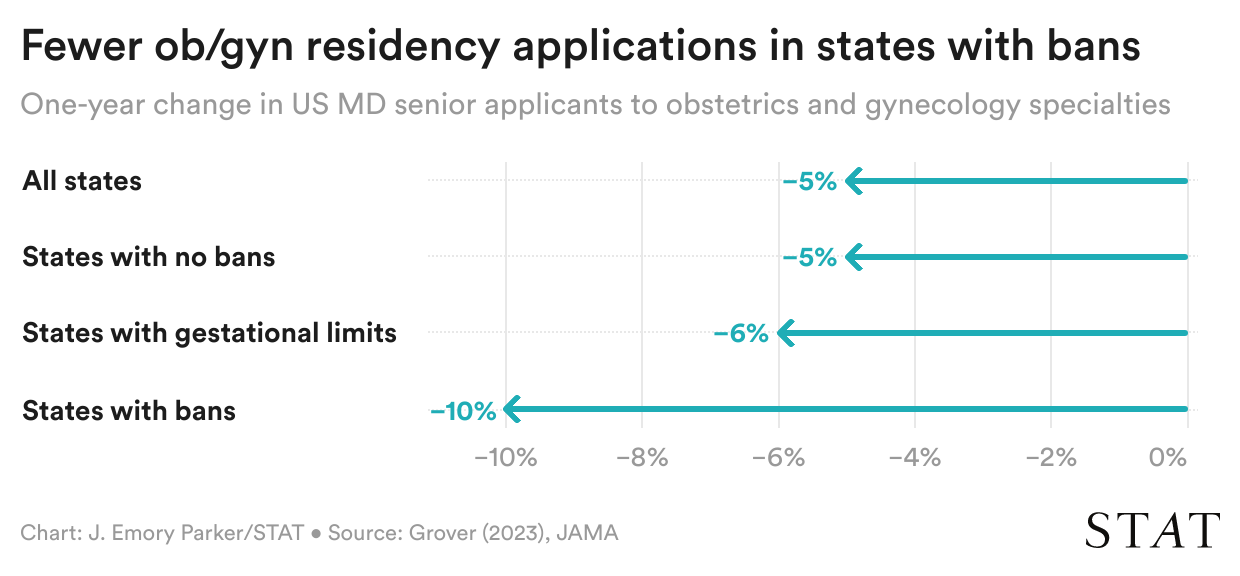cancer
Another Medicare coverage fight?
Grail is aggressively lobbying to get Medicare to pay for its cancer-screening test Galleri ahead of an expected FDA approval. But there's a big catch: Medicare doesn't usually cover tests that simply screen healthy people, as Galleri does.
Grail's been pushing Congress to change the law, as have other companies working in the same space, like Exact Sciences, STAT's John Wilkerson reports. While those companies got 311 lawmakers to back the idea during the last legislative session, actually advancing the legislation is a whole lot tougher in today's budget-minded political climate: The policy could cost the government tens of billions of dollars.
That said, the Grail push comes right as lawmakers pledge to scrutinize Medicare coverage decisions, ignited by its controversial move to restrict coverage of new Alzheimer's drugs while they go through more testing. Grail has a number of paths ahead but a slew of challenges as well. Dive into it with John here.
abortion
Understanding the post-Roe landscape, in 8 charts
You've probably heard a lot this past week about the one-year anniversary of the U.S. Supreme Court's Dobbs decision. Here is another, but with charts! Charts that show nearly a third of states have banned the procedure and half have enacted new limits. Just seven states – largely in the Northeast – have passed shield laws to protect abortion rights, especially for those who travel. One such refuge state, Illinois, is an island surrounded by restrictive abortion laws, as seen in this map by STAT's Emory Parker:
.png?width=2&height=2&upscale=true&name=Xc68x-current-legal-status-of-abortion-by-state(1).png)
.png?width=1350&height=1164&upscale=true&name=Xc68x-current-legal-status-of-abortion-by-state(1).png)
Changes happened swiftly, both for people seeking care and those who provide it. Abortion procedures fell nationwide, most sharply in abortion-restrictive states and the South. Fewer people are also joining the obstetricians and gynecology track across the country, but particularly in restrictive states – statistics sure to stoke advocates' warnings that abortion bans have far-ranging ramifications for women's health care.

There also was a spike in searches for contraceptive options in the weeks following the Dobbs decision, though that's fallen to nearly pre-Dobbs levels since, according to Emory's charts. The White House late last week promised to bulk up contraception access and options throughout commercial and government insurance plans.
Read more: Eight charts showing post-Roe America.
drug negotiation
The crystal ball on Alzheimer's coverage
Two of the foremost experts on the arcane process Medicare is using to cover Alzheimer's drugs released a detailed analysis in Health Affairs that looks at the challenges ahead for actually operationalizing the patient data registry the agency has demanded.
They note that previous data collection registries "have generally taken months to years to design and implement," and were a product of collaboration with stakeholders, unlike this time when many major groups are opposed to the data collection requirements. The current plan to allow for different registries without standardizing how to measure a patient's cognition could make it difficult to actually draw meaningful conclusions from the data, they say. They also point out that similar registries had charged large fees to hospitals to participate in data collection systems, and it's unclear who is paying or how much for Alzheimer's data collection.
The odds for full coverage aren't good, based on historical precedent the researchers examined: only four of 27 similar policies since 2004 have resulted in full Medicare coverage.
Peter Neumann and Sean Tunis, who wrote the piece, are researchers at Tufts Medical Center. Both have received consulting fees from pharmaceutical companies involved in Alzheimer's research and Arnold Ventures.


No comments